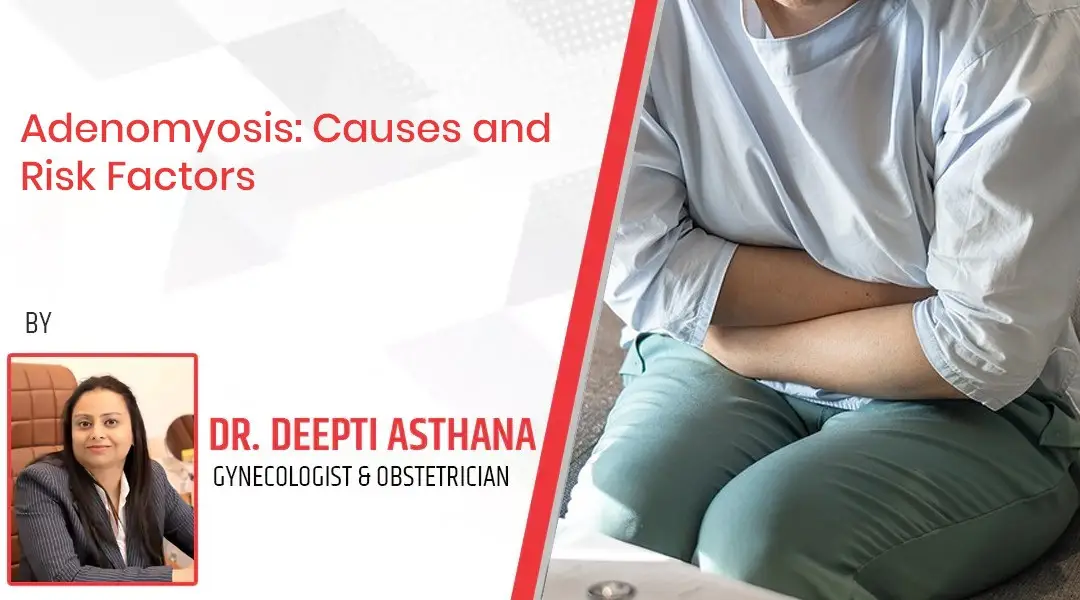
Introduction:
Adenomyosis is a condition in which the tissue that normally lines the uterus grows in the muscle wall of the uterus, causing heavy bleeding, pain during menstruation, and other symptoms. The exact cause of adenomyosis is not known, but there are several risk factors that can increase a woman’s chances of developing the condition. In this blog, we will discuss the causes and risk factors of adenomyosis.
Dr. Deepti Asthana is a gynecologist who has treated many patients with adenomyosis. In this blog, she will share her insights on the condition and its causes.
Causes of Adenomyosis:
The exact cause of adenomyosis is not fully understood, but there are several theories:
Retrograde menstruation: Retrograde menstruation is a common phenomenon in which menstrual blood flows back into the fallopian tubes and into the pelvis. It is believed that this process can cause endometrial tissue to grow outside of the uterus, leading to adenomyosis.

Risk factors for Adenomyosis:
There are several risk factors that can increase a woman’s chances of developing adenomyosis. These include:
- Age: Adenomyosis is more common in women in their 30s and 40s.
- Childbirth: Women who have had multiple pregnancies or who have given birth at a young age may be at higher risk for adenomyosis.
- Uterine surgery: Women who have had uterine surgery, such as a C-section or fibroid removal, may be at increased risk for adenomyosis.
- Hormonal imbalances: Hormonal imbalances, such as those caused by polycystic ovary syndrome (PCOS), may increase the risk of developing adenomyosis.
- Endometriosis: Women with endometriosis, a condition in which the tissue that lines the uterus grows outside of the uterus, may be at increased risk for adenomyosis.
Conclusion:
Adenomyosis is a common condition that can cause significant pain and discomfort. While the exact cause of adenomyosis is not known, there are several risk factors that can increase a woman’s chances of developing the condition. If you are experiencing symptoms of adenomyosis, it is important to talk to your doctor. Dr. Deepti Asthana recommends seeking medical attention as soon as possible to get an accurate diagnosis and develop an appropriate treatment plan.



Leave a Reply